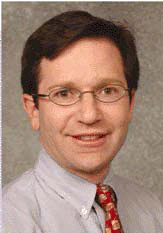How much stock should otolaryngologists put into the parental interpretations of their child’s complaints? According to Ellen M. Friedman, MD, an otolaryngologist in Houston, parental descriptions are an important part of patient histories, but you still need to perform objective measures.
Sometimes parents give vital information that can lead straight to the diagnosis, while other times they may be way off base, she told ENToday in an interview. Dr. Friedman is Professor of Otolaryngology at Texas Children’s Hospital, and presented a study at the American Academy of Otolaryngology-Head and Neck Surgery meeting last September on the topic of parental perceptions of otolaryngologic problems in their children.
In brief, she found that parental perceptions fall into one of three categories: those who underestimate a problem, those who overestimate the severity of a problem, and those who are right on target.
Consider the case of the parents who brought their young child into the clinic insisting that the child’s choking and wheezing symptoms were from a piece of lemon rind that went down the wrong way.
After looking at the history, it was found that the child had indeed choked on a lemon rind a couple of weeks earlier, but a finger swipe had apparently removed it. In addition, the child’s pediatrician had recently placed the child on medications for asthma, but the parents, who both had childhood asthma themselves, were focused on the lemon rind theory as the cause of their child’s problem.
Who Knows Best?
Whom do you believe? Do parents know best, or does the otolaryngologist have some educating to do? And, in general just how much weight should the otolaryngologist put into diagnoses by parents?
The lemon rind case happened to be one seen by Dr. Friedman, who explained what ensued.
The child’s mother brought the child to me, I did a bronchoscopy, and there was another piece of lemon rind down there. This was a case in which the parents were correct. However, she added, this isn’t always the case.
Curious about how accurate parental perceptions of their child’s illness are, Dr. Friedman did a study on the topic. Although there are numerous studies in the medical literature comparing parental diagnoses to clinical assessments, very few have looked at the topic specifically in the otolaryngology setting.
In the study, researchers conducted a survey of parents, asking about their child’s symptoms, then compared these findings to objective clinical measures. The patients fell into three different clinical categories: balance, hearing, and sleep complaints. The objective measures consisted of the Peabody Developmental Motor Scales (PDMS), audiometry, and polysomnography, respectively. There were a total of 235 children in the study (with a corresponding number of parents surveyed) who ranged in age from 8 months to 15 years.
Parents in all three areas were not really able to give an accurate history. There were examples where the parents thought the children’s balance skills were better than average, yet they were worse than average. [Parents either] overestimated or underestimated the symptoms of their child, Dr. Friedman said.
The same was true when it came to children who were being seen for hearing problems. In some cases, parents thought the child had hearing loss, yet a significant percent did not have hearing loss. But in some cases the parents were correct about the hearing loss.
With the sleep disturbance one, some of the people thought the children had severe sleep apnea and they didn’t have any apnea at all. And some of them thought the kids had normal sleep but the children had significant sleep apnea, Dr. Friedman said.

Sometimes, as in the lemon rind case, parents do get it right-so doctors can’t assume that parents either exaggerate or miss problems.
As a physician you use parental history to help guide you toward thinking about the workup and also for the treatment, she said. But it’s the clinical assessment that can pinpoint and clarify what the problem is.
Another case seen by Dr. Friedman was of a child brought in for earache. The parents had dutifully administered ear drops and were so focused on that particular problem that they somehow didn’t pay attention to a mass growing on the auricle, which turned out to be a tumor.
You think, what were they thinking? Too neurotic isn’t good, but too laid back isn’t good either, she said.
Reality Check
The medical literature abounds with studies of parental perceptions and attitudes about the health of their offspring in various specialties such as psychiatry, nutrition, and orthopedics. Many show that parental perceptions simply do not match up with clinical findings.
Several studies looking at how parents perceive their child’s weight and body mass index (BMI) show that many underestimate how heavy their child is, or will rank a child with a heavy BMI as having a healthier BMI than they really have. This could be of interest to otolaryngologists because of the effect of obesity on conditions such as obstructive sleep apnea (OSA).
A recently published study by Belgian researchers found that more than 75% of cases of obesity in preschool-aged children would be missed if only parental reports of weight and height were used. On the other hand, Italian researchers reported (in a study that was part of a large nutritional survey in Tuscany) that mothers had an accurate perception of the nutritional status of their children and were able to accurately choose silhouettes that corresponded to their child’s BMI.
Another pediatric otolaryngologist, Norman Friedman, MD, Director of the Pediatric Pulmonary Sleep Laboratory at the University of Colorado, told ENToday that he too has seen discrepancies in his practice.
In one case, he saw a two-year-old boy whose parents reported some snoring but no real struggle to breathe. The child had 4+ enlarged tonsils. His sleep study had severe OSA with episodic hypoxemia, and he required supplemental oxygen prior to his surgery, he said.
The reality is, most of us perform surgery on children with a parental history consistent with OSA and an abnormal physical exam. It is difficult to predict the accuracy of a clinician’s exam, he said.
In a chapter he wrote for the book Clinician’s Guide to Pediatric Sleep Disorders, he described how history alone often does not predict the presence of sleep-disordered breathing.
The parents could report loud snoring, mouth breathing, pauses, but their history was not consistently confirmed by PSG. This implicates that the presence of snoring is not diagnostic of OSA, he wrote.
Indeed, the symptom of snoring is more common than the incidence of OSA, so most children who snore do not have OSA. A meta-analysis of 10 studies on the topic of pediatric OSA found that 55% of children suspected as having OSA actually had OSA as confirmed by PSG.
Although objective testing is important when it comes to pinpointing a diagnosis, sometimes testing alone doesn’t tell the whole story. According to Dr. Norman Friedman, recent studies suggest that snoring, even without apnea, can be detrimental to a child’s health-and shouldn’t be ignored.
He also described a case he saw of a seven-year-old girl with Down syndrome who had markedly enlarged tonsils of 4+. The mother reported snoring, but no pauses. While children with Down syndrome are at increased risk for OSA, especially with enlarged tonsils, in this case the mother was correct. A sleep study did not reveal any obstruction-just snoring.
Playing Detective
When listening to the parents, doctors need to listen for clues. Dr. Ellen Friedman described a case of an eight-year-old girl who was brought in for swallowing complaints.
The mother said she might have been playing with some coins before this happened but wasn’t sure. But the child’s grandmother had died recently from scleroderma-which had a principal complaint of trouble swallowing. The physician listening to this thought the girl’s swallowing problem was a psychological grief reaction to her grandmother’s death, she said.
After several sessions with a psychologist, the psychologist finally said he suspected that possibly the girl really was having trouble swallowing. A barium swallow revealed that a coin had lodged in her esophagus, and the girl required a resection.
The moral of the tale? Never assume anything. In order to come to the correct diagnosis, it is best for the physician to use a combination of the information learned during the history and the data generated by appropriate objective tests, she said.
©2007 The Triological Society

Leave a Reply